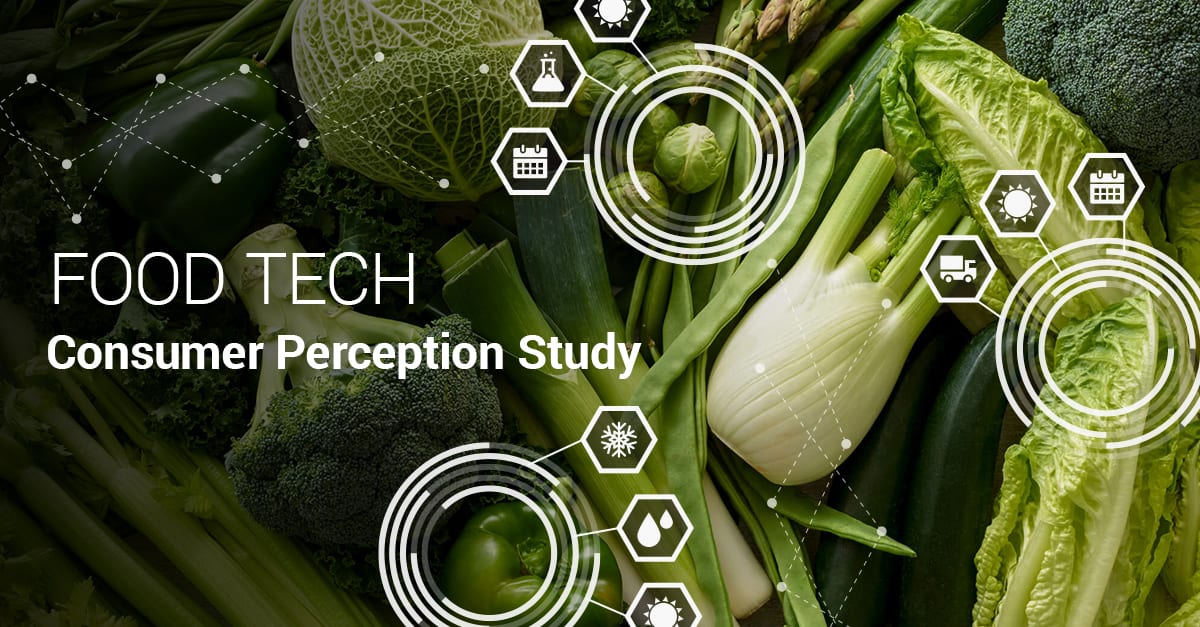NEW YORK, Nov. 1, 2019 – The newest generation of food consumers with purchasing power, Gen Z, is more open to food technology than older generations, according to new research from global communications consultancy Ketchum. The research also showed that food makers communicating about food technology may be more effective at reaching consumers by selecting the right combination of scientifically supported facts and benefits.
According to the Food Tech Consumer Perception study, Gen Z respondents indicated they are more likely to try a food grown with technology (77%) and are more comfortable overall with the use of technology to grow food (71%) than are millennials (67% likely to try/56% comfortable), Gen X (58%/51%) and Baby Boomers (58%/58%).
Higher percentages of Gen Z and millennials qualified as Food eVangelists, a type of influencer first identified by Ketchum in 2013. While 27% of Gen Z and 29% of millennials fit the profile of this small but globally powerful group who want to impact the way food is raised, packaged and sold, just 8% of Baby Boomers and 15% of Gen X can be considered Food eVangelists.
Ketchum used its Unfiltered biometric methodology, powered by september Strategie & Forschung, to test multiple food technology videos in order to better understand the words and images that support consumers as they seek to learn more about food technology. The Unfiltered methodology measured physical responses such as micro facial expressions, heart rate and skin fluctuations, followed by in-depth interviews to understand if and how the content helped consumers get the information they want.
“Food can evoke powerful emotions, so companies that make food technology or food produced using technology need to understand how consumers react to messages on both the conscious, rational level and the subconscious level,” said Bill Zucker, partner and managing director of Food for Ketchum. “Consumers want access to information that is understandable and transparent so they can make decisions that are right for them.”
Kim Essex, partner and managing director of Food Agriculture & Ingredient for Ketchum, added, “Getting this message right has never been more important. Food eVangelists are open to learning about food technology and will share more with their networks, but they are also quick to dismiss a poor explanation. Food eVangelists in their 20s are especially powerful, not only for purchases they influence today but also for the future generations they’ll impact. This group’s openness to food technology points to a major opportunity for food marketers to rethink their messages.”
Ketchum pioneered the original research around Food eVangelists and for the past six years has followed the evolution of this group of food influencers, who engage in conversation and share their opinions about food online or in person multiple times per week. Ketchum’s food experts work with clients to help them pinpoint the right way to communicate about their food technology, including the appropriate content, speaking platforms, paid and earned media channels, and influencer relationships.
“Our biometric study showed what kind of missing information can trigger skepticism receptors, the importance of succinctly explaining the problem upfront, and that being transparent does not always mean communicating a litany of facts,” said Zucker. “What emerged is a customizable roadmap that can act as a starting point for companies creating food technologies and a reality check for those already marketing foods using those technologies.”
For more details on the Food Tech Consumer Perception Study and the How to Talk Food Tech roadmap, visit www.ketchum.com/foodtech.
About Ketchum’s Food Tech Consumer Perception Study
Ketchum’s research utilized a number of data sources for this study. In August 2019, an online omnibus survey of 1,232 nationally representative Americans was conducted with YouGov to determine the incidence of Food eVangelists. In October 2018, Ketchum conducted an analysis of biometric response, including heart rate, skin conductance levels and microfacial expression, followed by in-depth interviews, to determine reaction to pieces of content. In March 2018, an online omnibus survey of 1,119 nationally representative Americans was conducted to determine attitudes around food technology.
About Ketchum
Ketchum is a leading global communications consultancy with operations in more than 70 countries across six continents. PRWeek’s Agency of the Past 20 Years, Ketchum is the winner of 105 Cannes Lions and an unprecedented six PRWeek Campaign of the Year Awards. Ketchum partners with clients to deliver strategic programming, game-changing creative and measurable results that build brands and reputations. For more information on Ketchum, a part of Omnicom Public Relations Group, visit www.ketchum.com.
About Omnicom Public Relations Group
Omnicom Public Relations Group is a global collective of three of the top global public relations agencies worldwide and specialist agencies in areas including public affairs, marketing to women, global health strategy and corporate social responsibility. It encompasses more than 6,300 public relations professionals in more than 370 offices worldwide who provide their expertise to companies, government agencies, NGOs and nonprofits across a wide range of industries. Omnicom Public Relations Group delivers for clients through a relentless focus on talent, continuous pursuit of innovation and a culture steeped in collaboration. Omnicom Public Relations Group is part of the DAS Group of Companies, a division of Omnicom Group Inc. (NYSE: OMC) that includes more than 200 companies in a wide range of marketing disciplines including advertising, public relations, healthcare, customer relationship management, events, promotional marketing, branding and research.
